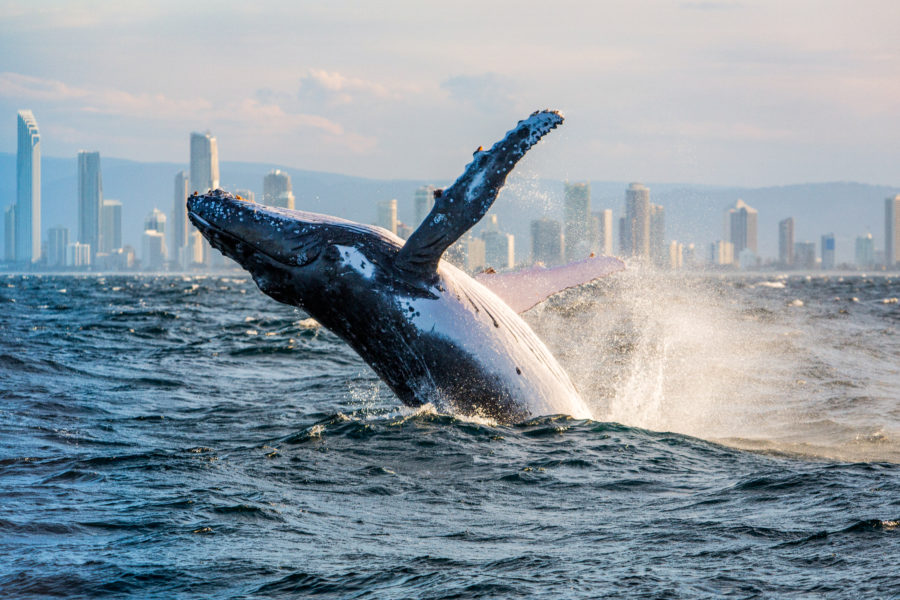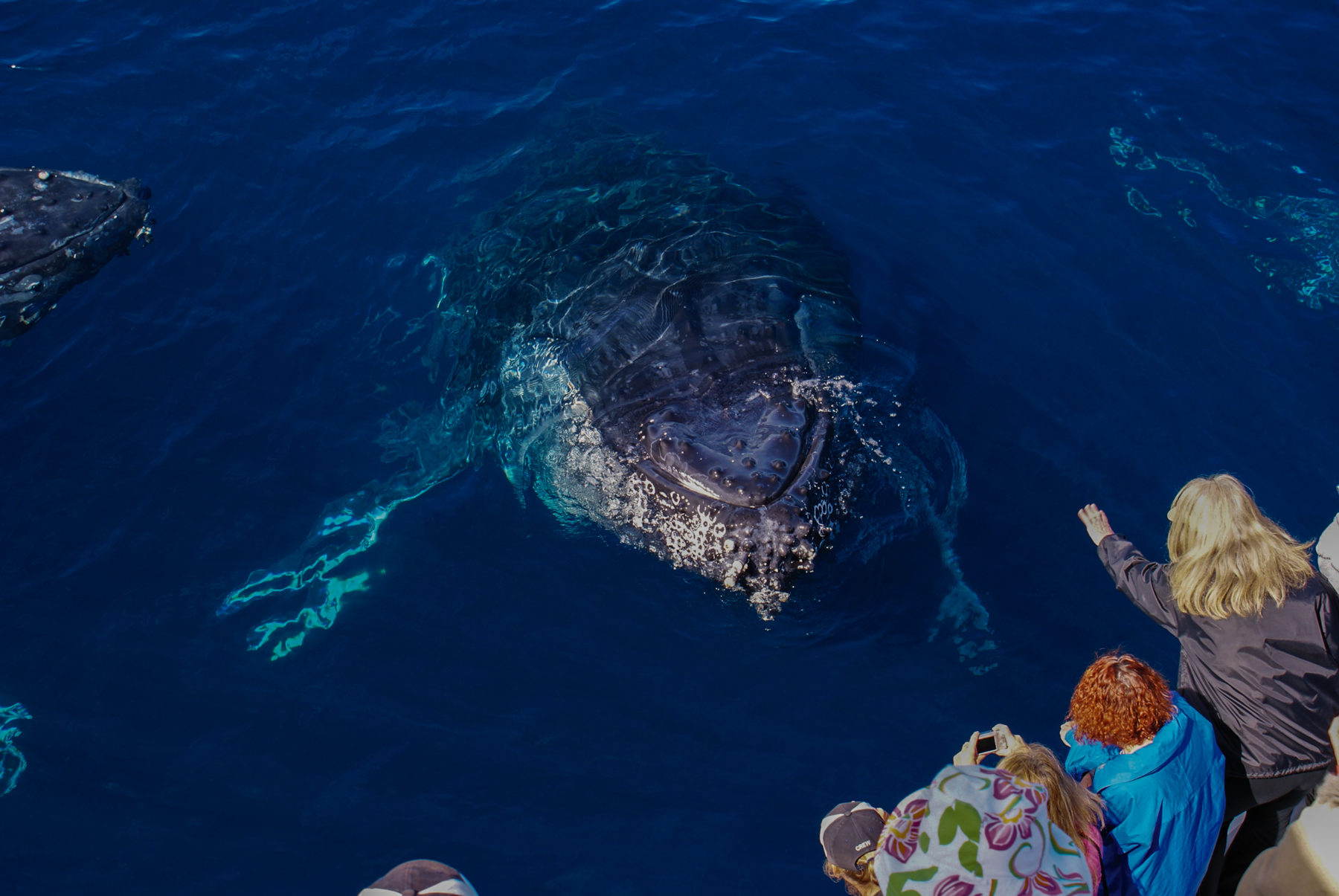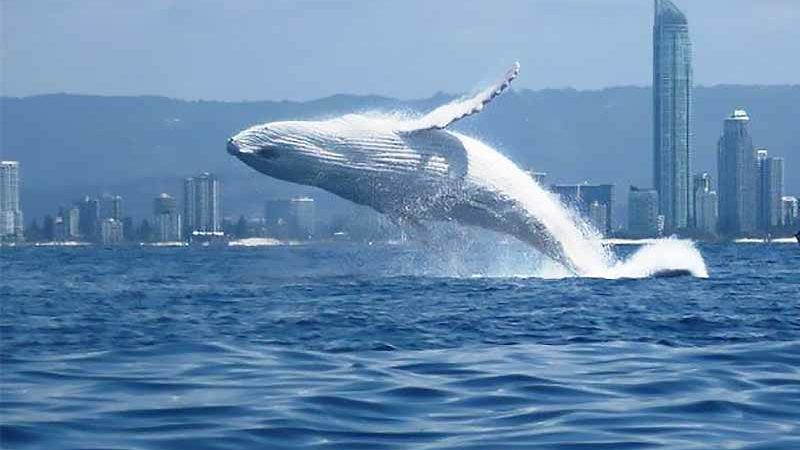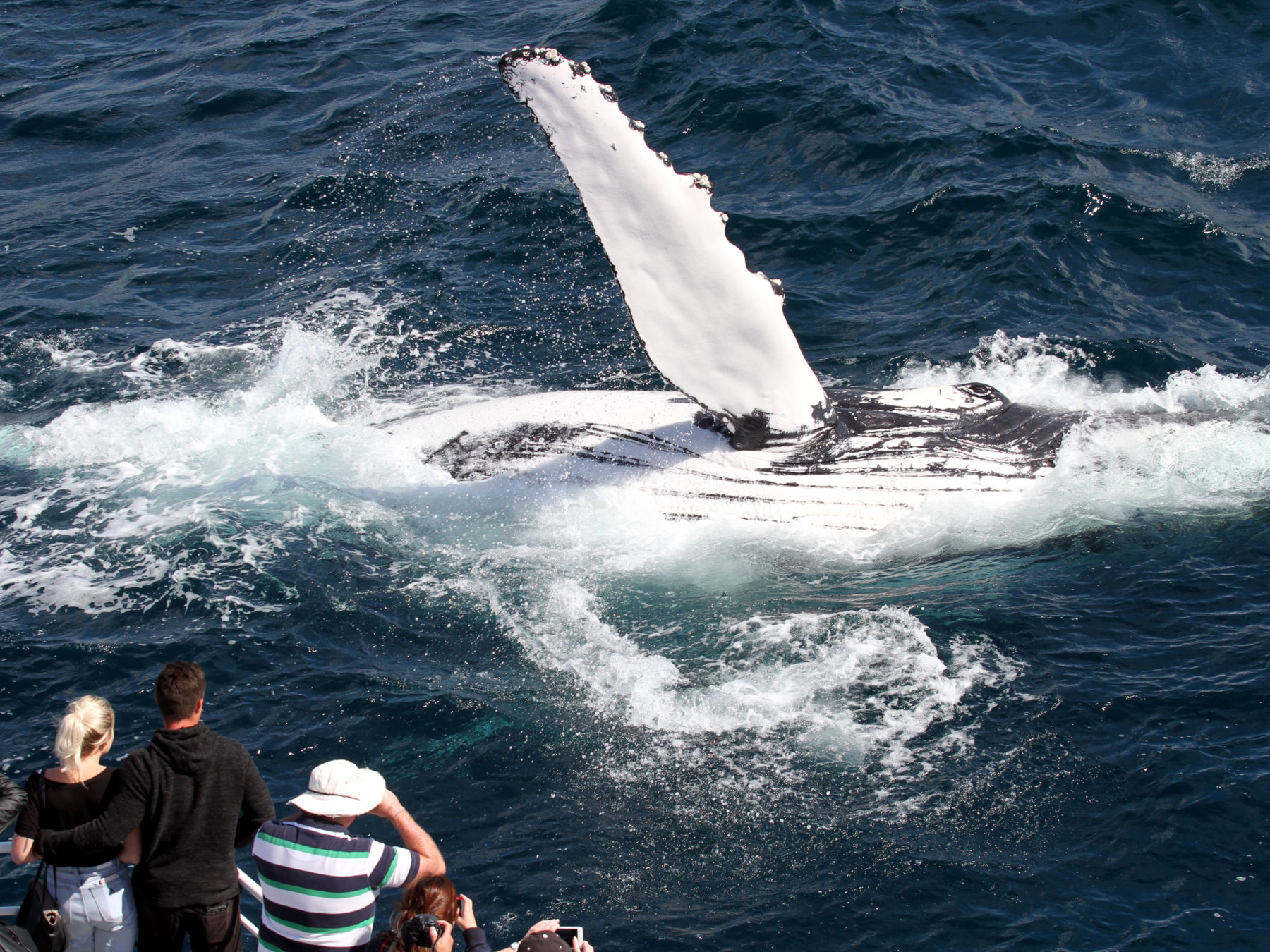Fluking it on the Gold Coast

This article is brought to you by Destination Gold Coast.
The Gold Coast has so many attractions, both manmade and natural, but there is another string to this sunny tourism region’s bow that surprises many. It is a fantastic place to go whale watching.
Every year, whales follow their inner urges and leave the icy waters of the Antarctic to swim north up the east coast of Australia to calve in the warmer tropical waters before sidling south again months later. And guess who has the longest continuous whale watching season in Australia? The Gold Coast! The season runs from late May to October.

Whale tales
The Gold Coast can back up its claims to be the best place to go whale watching in Australia. Dr Olaf Meynecke, Manager Whales and Climate Program at Griffith University, Researcher Whale Ecology and Lead Scientist Marine Megafauna CMRC, knows a thing or two about whales. He has undertaken many research projects on humpback whales in past years, particularly during the last 12 years on the Gold Coast.
As to why the Gold Coast is so good for whale watching, Dr Meynecke explains that the Gold Coast is easily accessible for people but is also easily accessible for whales. “The Gold Coast bay is actually an open embayment with many features that humpback whales prefer for socialising, resting and even giving birth. The sandy bottom and shallow waters protected from south-easterly trade winds make the region a preferred stopover during their long migration.”
Dr Meynecke said he mostly sees humpback whales on the Gold Coast, and thanks to their ‘acrobatic displays’, they are also one of the favoured whale species to watch. “However, we do have regular sightings of dwarf minke whales, a small number of southern right whales, a variety of toothed whales such as false killer whales and even orcas who generally migrate further offshore from the Gold Coast so are less likely to be encountered.”

When and how to go whale watching on the Gold Coast
Whale watching is so easy on the Gold Coast due to the number of whales coming through and the proximity of the whales to the shore. Dr Meynecke explains: “The majority of whales are coming through from mid-June to mid-July on the northern migration and then in September during the southern migration when we often find them very close to shore – just a few hundred metres from the beaches and high rises. We then have hundreds of whale sightings per day. But whale watching outside these peak migrations can be equally as good, if not better. Often the whales have more time to rest on the surface and change direction less often, making it easier to observe them.”
For a closer look at whales, complete with those skyline views of the Gold Coast, head out on the water on a whale-watching cruise. Because the whales are relatively close to shore, it is usually around 30 minutes by boat from the dock, meaning you can do a whale watching tour in half a day, giving you more time to enjoy some of the many other Gold Coast activities.

The Gold Coast offers a range of whale watching boat tours, from large group to private charters. Tours depart from various locations, including Mariner’s Cove at Main Beach and Surfers Paradise. Take your pick of a range of experienced operators, there are more than half a dozen to choose from depending on the type of experience you’re looking for. If you’ve got a large group, you may want to consider a private charter where you can combine some whale watching with some gentler sailing in the warm winter sun. Or if you really want to learn all about whale behaviours, then larger group options with an onboard marine expert might be more what you’re looking for. Either way, the Gold Coast is one of the best locations to catch whales displaying a full array of behaviours, and the spectacular skyline of the Gold Coast makes for an unforgettable backdrop.
Guests will see other wildlife as well on the whale watching tours, including bottlenose dolphins, loggerhead and green turtles, juvenile hammerhead sharks and seabirds.
Apart from watching whales, you might even be able to help with whale research. Several operators support citizen science groups such as Humpbacks and High-rises with guests able to report sightings and upload images.
As Dr Meynecke says, “every whale counts”.
This article is brought to you by Destination Gold Coast.

